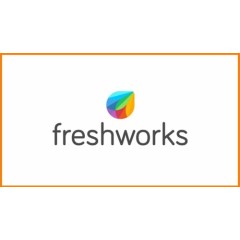
When Allison Whalen returned from parental leave years ago, she found her corner of the business in shambles. Her direct reports were frustrated, her projects had stalled, and she felt the weight of disruption on both sides. Curious whether her experience was unique, she asked around. The response was striking: The number-one reason employees left their companies after parental leave wasn’t lack of policy—it was career derailment caused by how leave was managed.
That “aha” moment led her to found Parentaly, a company that helps thousands of employees and managers navigate parental leave through pre-leave planning, return-to-work support, and manager training. With clients ranging from Zoom to PwC to Hershey, Whalen has built a front-row seat to how leading companies are rethinking leave.
I sat down with Whalen, who also happens to be a Wharton MBA and former enterprise sales leader at Managed by Q (acquired by WeWork), to talk about what’s changing in 2025—from why parental leave is now viewed as a business event to how it’s becoming a surprising career accelerator.
Subscribe to A Cup of Ambition . A biweekly newsletter for high-achieving moms who value having a meaningful career and being an involved parent, by Jessica Wilen. To learn more visit acupofambition.substack.com.
Have you noticed any emerging trends in how leading companies are approaching parental leave in 2025?
I think a lot of companies raced to expand their paid leave policies a couple of years ago, which was a really positive step. But now they’re facing the challenges of implementation. Many expanded without putting enough thought into how to actually manage these longer leaves effectively. More than ever, I’m hearing HR and leadership teams say they’re fielding concerns from managers about how to support the business when critical employees are out for extended periods.
The shift I’m seeing is that companies are starting to recognize parental leave not just as a personal event but as a business event. Historically, people were hesitant to talk about the challenges openly, because they didn’t want employees to feel unsupported. But I’m seeing organizations become more comfortable proactively planning for absences in a way that actually makes employees going on leave feel more supported.
In short, companies are realizing they need to invest not only in the policies themselves but in the execution—so that working parents are truly supported, and so those longer paid leave policies remain sustainable.
How do you see parental leave fitting into broader conversations about retention and talent development?
One of the big shifts I’m hearing from HR leaders is around how parental leave can actually be a career accelerator. Instead of seeing it as a pause, companies are starting to think long term: When someone returns, could they step into a role that’s more senior, a better fit, more aligned with their career trajectory? Leave can be a forcing function to help an employee shed responsibilities that feel too junior or unproductive, which is something I get really excited about, because it aligns so closely with what we believe in.
The other shift is around talent development for the coverage team. Companies are asking: How can we use this as a chance to give a junior employee a stretch assignment, or to give someone from another part of the organization exposure to a new area of the business? And if that person thrives, maybe they stay in that role or expand into new opportunities.
What I’m seeing overall is more positive conversation about coverage and replacement—employees saying, “I’d love to be replaced if it means I get elevated when I return,” as long as that’s what they want. It’s hard to pull off in practice, but when it’s done with the right planning and support, it can be a win for everyone.
In your experience, what cultural signals really distinguish companies that truly care about supporting working parents from those that are just checking the box?
In my view, the biggest indicator of whether a company truly supports parental leave is whether fathers are taking it. When men have access to extended paid leave and actually use it, it’s such an equalizer—it signals broad-based support and reframes leave as a caregiver experience, not a men-versus-women issue.
advertisement
Another indicator is how openly company leaders talk about parental leave and frame it as a positive, supported moment. And honestly, you can also hear it in how employees talk about their experiences. Two companies might have identical policies, but at one, employees will say they felt they could disconnect, that they were treated respectfully when they returned, that they came back to a strong role. That’s what people post about on LinkedIn—not the policy itself, but the lived experience.
So for me, the two biggest signals are whether fathers actually take their leave, and how leaders and employees are talking about the leave experience.
Building on that—if someone’s job searching and they’re pregnant or planning to be, are there any markers they can look for, from the outside, to get a sense of the real story?
First of all, table stakes is whether the company publishes its paid leave policy and benefits for all caregivers. If they don’t, that may be a red flag. As a job seeker, I’d want to see specifics: How many weeks do they offer? Do fathers get paid leave? Do hourly as well as salaried employees have access? Those details say a lot about the culture and how broadly they think about support.
You can also look at what else they publish—bereavement leave, NICU leave, policies that go beyond parental leave but show how they support employees through different life milestones. I often hear people say they ask about parental leave policies in interviews even if they’re done having kids, because it’s a signal. If a company offers leave for men, extended leave for birthing parents, and thoughtful policies overall, that usually reflects how they’ll treat employees during other major personal moments as well.
What organizational blind spots do you see most often when companies roll out parental leave programs?
I think the biggest blind spot is when companies roll out a policy without the support to actually make it work. A big part of that is the managers’ experience. Managers are put in a tough spot—they want to support their employees, but they’re also thinking, How am I supposed to do that and still deliver on my goals? And of course, no one comes to them and says, “We’ll cut your goals in half because someone on your team is going on leave.”
That’s one of the biggest missteps I see—assuming managers will just figure it out. Instead, they often end up scared, unsure what they legally can and can’t say, and fall back on their own personal experiences, whether or not they’re parents themselves. That leads to inconsistency, and it puts a lot of pressure on managers who, in most cases, genuinely want to do the right thing but just don’t know how.
Subscribe to A Cup of Ambition . A biweekly newsletter for high-achieving moms who value having a meaningful career and being an involved parent, by Jessica Wilen. To learn more visit acupofambition.substack.com.



